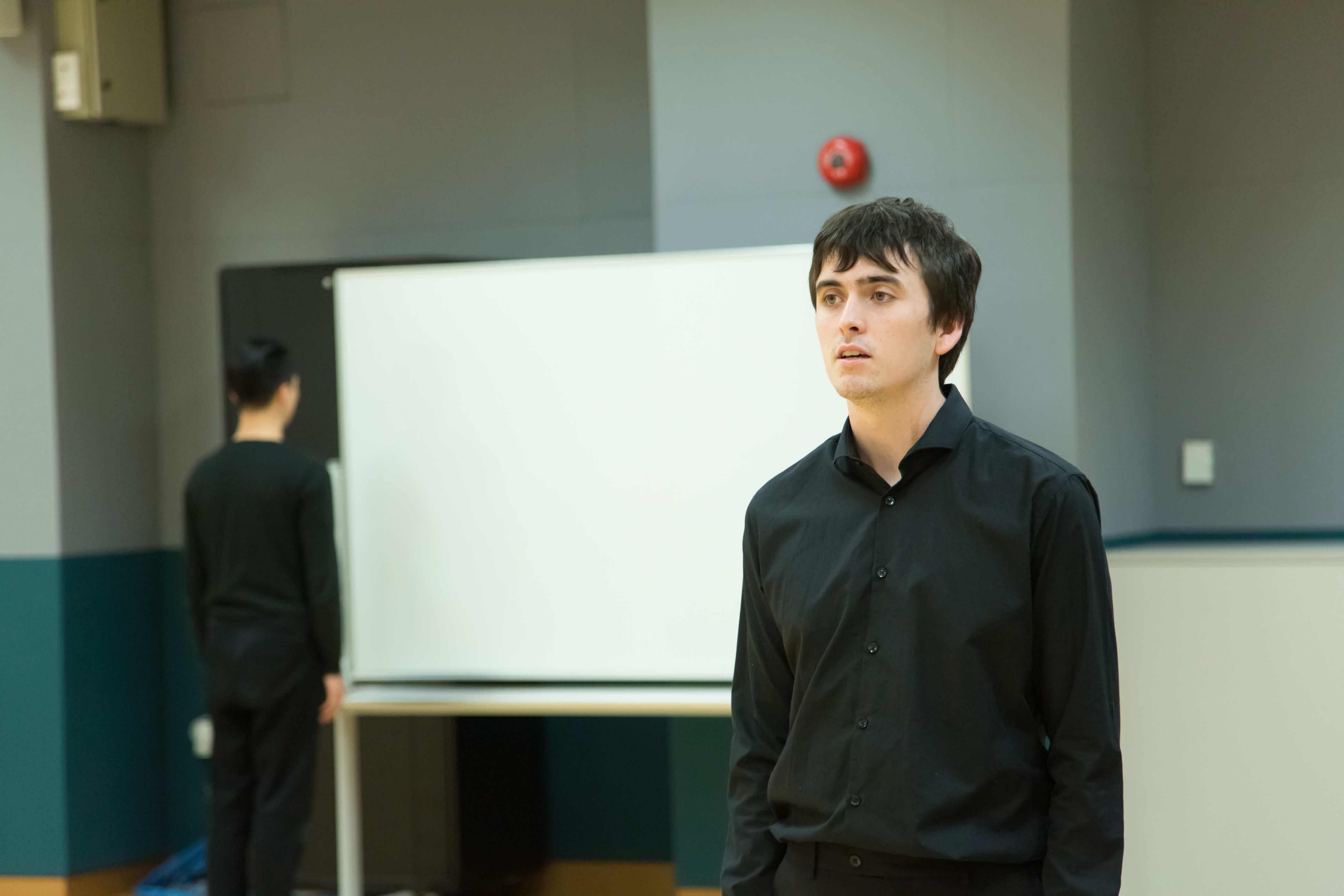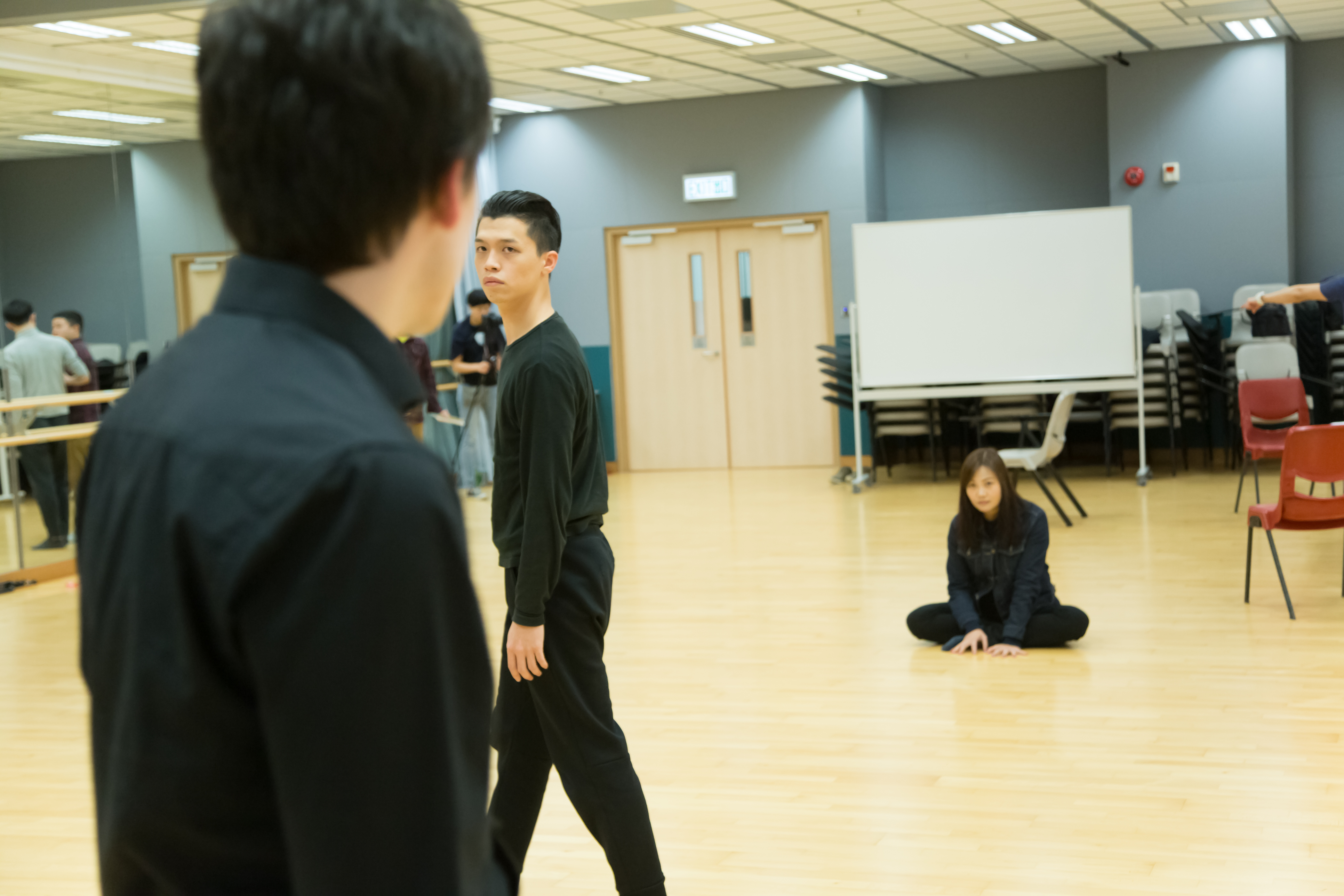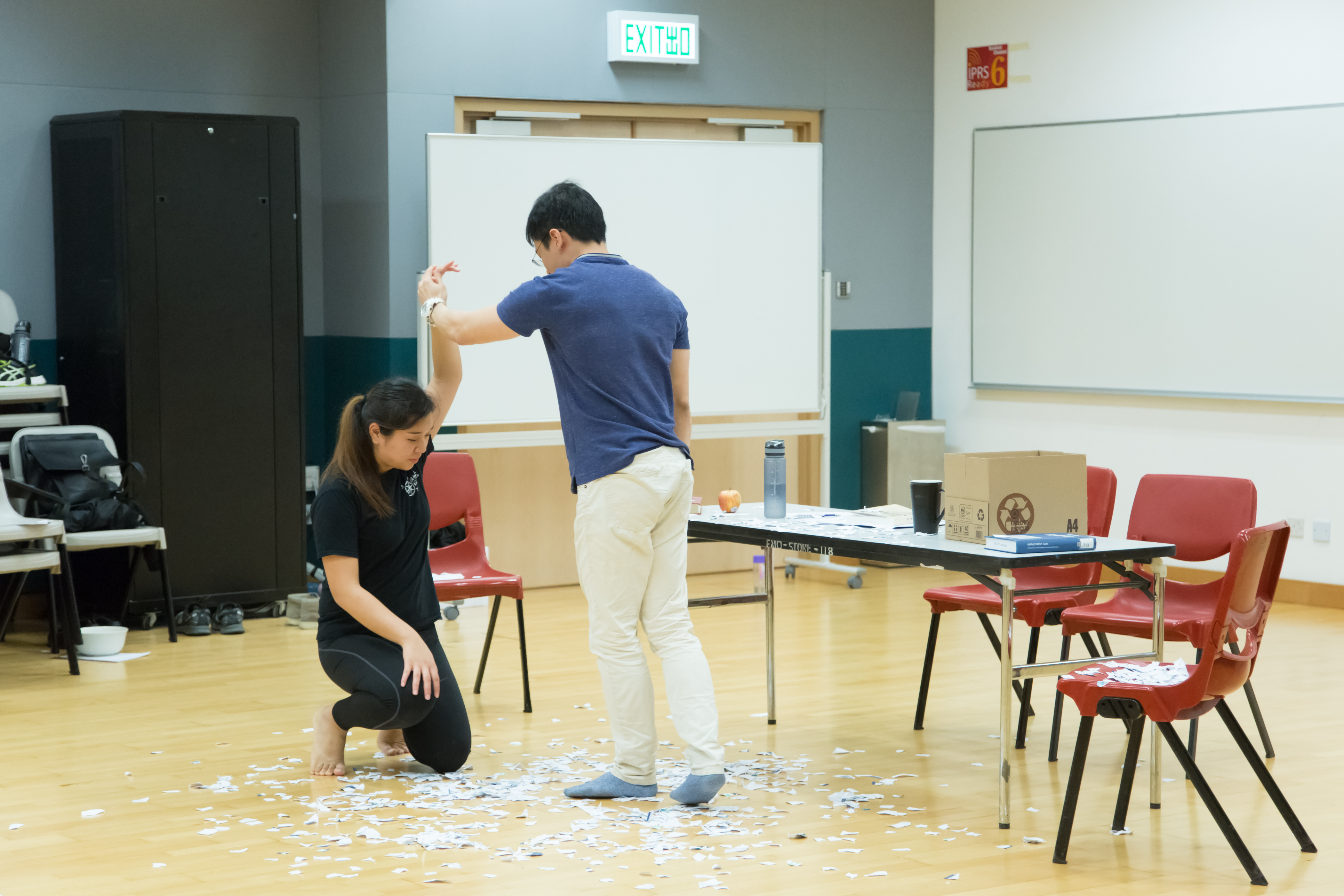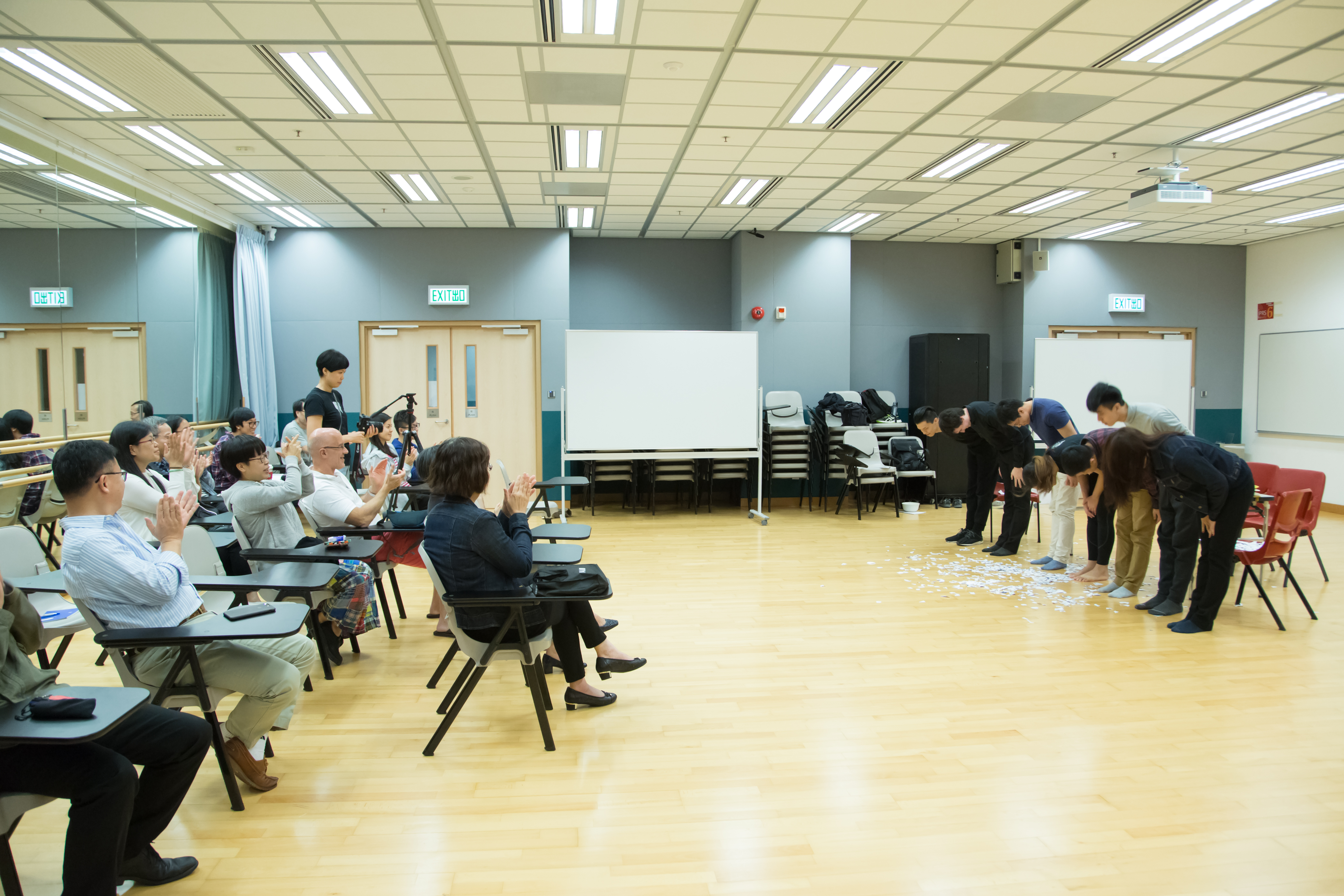2017-18 Fall
(HART 1044)
1 Credit | Can be used to fulfill Common Core Requirement (Core Elective: Arts Area)
Teaching Medium: English
Course Description
Science and Theater both seek to examine and interpret the world to build up knowledge and insights about life. Scientists work on getting closer and closer to the truth behind the phenomenon observed in life, while Theater artists dissect and reveal the truth of lived experiences from different perspectives. The two disciplines are therefore crucial in the betterment of humanity and our relationship with the world.
In this practicum arts course, students will explore the beauty of the synthesis of Science and Theater through the study of selected influential plays on science and humanity, and interactive drama workshops exploring the science in performing arts, and the humanity and dramatic nature in science. The drama experience will deepen students’ understanding of the connection between science and drama. With the acquired performing skills, the exploration of scientific concepts, and the understanding developed about the plays, students will work in small groups to perform excerpts of the plays in class.
Remarks
Class schedule : Lessons in this course may last for 2 hours or 3 hours depending on the course content. Please refer to the Course Topics below for details.
-
Appreciate and understand the connections between science and drama
-
Acquire theater language and performing skills
- Understand the issues and meaning about science and humanity of the plays studied in the course
- Embody abstract scientific concepts through a transformative, creative and performing arts process
- Perform an excerpt of drama script about scientific concepts with appropriate artistic skills and understanding
PHASE 1: Introduction
Week 1: Course Overview and Introduction (2 hrs)
Week 2: Assimilation of Science and Drama (2 hrs)
PHASE 2 : Learning about the plays and the assimilation of Science and Drama
Week 3: First Play: “Copenhagen” by Michael Frayn (3 hrs)
-with Guest Lecturer Prof. Leung Pak Wo, Department of Physics
Week 4: Staging and performing skills for the play (2 hrs)
Week 5: Second Play: “Arcadia” by Tom Stoppard (2 hrs)
-with Guest Lecturer Prof. Leung Pak Wo, Department of Physics
Week 6: Staging and performing skills for the play (3 hrs)
Week 7: No class
Week 8: “After Darwin” by Timberlake Wertenbaker (3 hrs)
Week 9: Staging and performing skills for the play (2 hrs)
Phase 3: Creative process, application of knowledge and skills, rehearsals, performance, and reflection.
Week 10: Selecting excerpts; identifying dramatic objectives & actions (2 hrs)
Week 11: Blocking, movement and audience configuration (1.5 hrs)
Week 12: Final Rehearsal (1.5 hrs)
Week 13: Final Performances, feedbacks and course evaluation (2 hrs)
- Frayn, Michael. (2000) Copenhagen. United States: Anchor Books.
- Stoppard, Tom. (1994) Arcadia. United States: Farrar, Straus and Giroux
- Wertenbaker, Timberlake. (2002) Timberlake Wertenbaker: Plays 2: The Break of Day, After Darwin, Credible Witness, The Ash Girl, Dianeira. United States: Faber & Faber.
1. Gleick, James. (1988) Chaos: Making a New Science. New York: Penguin.
Enrolment Details
Course Registration : 24-25 Aug 2017Add/Drop : 01-14 Sep 2017
Instructor
Krissy Yin LAM
Assessment
| Attendance | 10% |
| Course Participation | 35% |
| Critical Commentary | 25% |
| Final Performance | 30% |
Class Schedule
Wednesday | 14:00 - 16:50
CYT-G009




